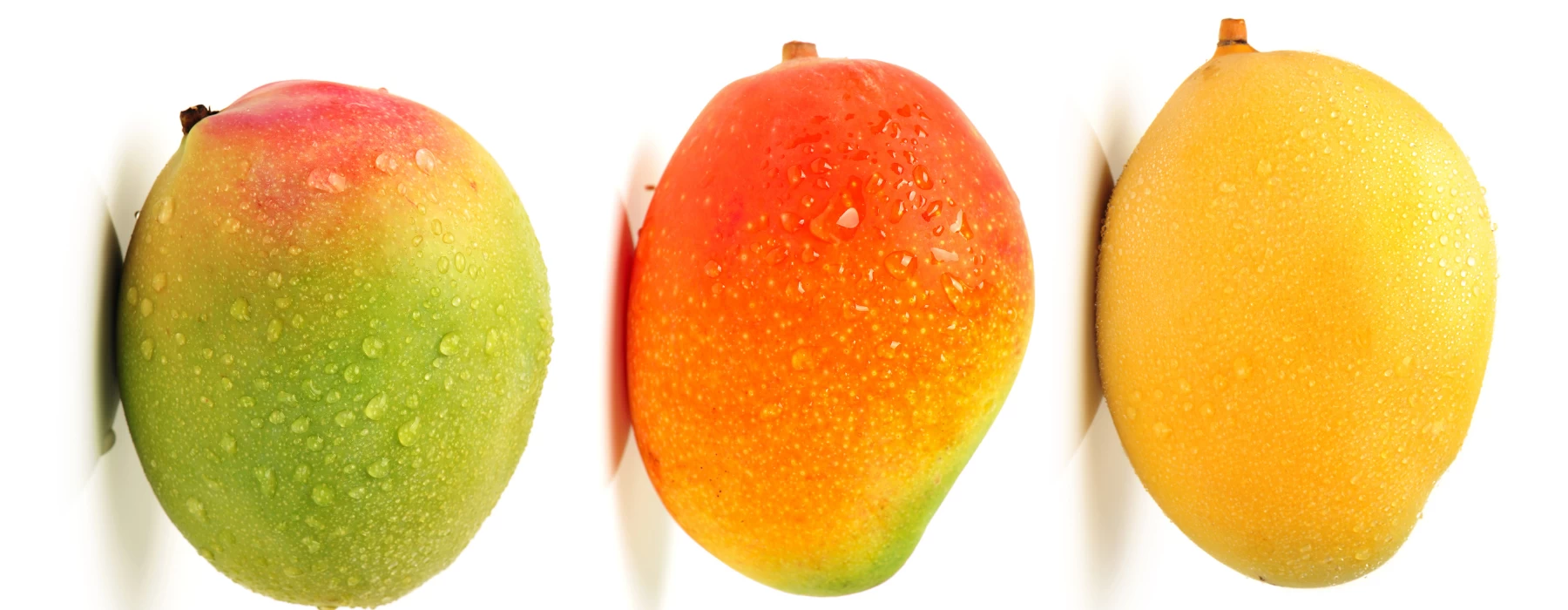Mango
Mango

Mango is called “king of fruits.” Mango is cultivated mainly in India and Southeast Asia. The fruit is not only delicious but also boasts a very good nutritional profile. Nutritional facts of mango per cup (165 grams):
|
Calories |
99 |
|
Protein |
1.4 grams |
|
Carbs |
24.7 grams |
|
Fat |
0.6 grams |
|
Dietary fiber |
2.6 grams |
|
Vitamin C |
67% of RDI |
|
Copper |
20% of RDI |
|
Folate |
18% of RDI |
|
Vitamin B6 |
11.6% of RDI |
|
Vitamin A |
10% of RDI |
|
Vitamin E |
9.7% of RDI |
|
Vitamin B5 |
6.5% of RDI |
|
Vitamin K |
6% of RDI |
|
Niacin |
7% of RDI |
|
Potassium |
6% of RDI |
|
Riboflavin |
5% of RDI |
|
Manganese |
4.5% of RDI |
|
Thiamine |
4% of RDI |
|
Magnesium |
4% of RDI |
Health benefits of Mango:
- Mango is rich in polyphenols like, mangiferin, catechins, anthocyanins, quercetin, kaempferol, rhamnetin, benzoic acid and many others. Out of these, mangiferin is the most impressive one. Polyphenols work as antioxidants and protect your cells against free radical damage.
- Mango contains immunity boosters. One cup of mango provides 10% of daily needs of vitamin A. Vitamin A is essential for a healthy immune system. In addition to vitamin A, mango also contains folate, vitamin K, vitamin E and several B vitamins, which act as immunity boosters.
- Potassium and magnesium present in mango help keep the heart healthy. The antioxidant mangiferin may protect heart cells against inflammation, oxidative stress and apoptosis. It can also lower blood cholesterol, triglycerides and free fatty acid levels.
- Mango contains digestive enzyme amylases which aids in digestion. In addition mango is also zipped with fair amounts of water and fiber. So, overall it is good for digestive health.
- Lutein, zeaxanthin and vitamin A present in mango, support eye health. Lutein and zeaxanthin are antioxidants, which may protect from the sun. Lack of vitamin A is often associated with vision problems.
- Vitamin A, vitamin C and polyphenols of mango are very good for healthy skin and also promote healthy hair. Polyphenols also have anticancer properties. Polyphenols of mango may fight oxidative stress, which is associated with colon, lung, prostate, breast and bone cancers.
Overall, mango is a delicious and healthy choice.
Some potential side effects of consuming mangoes include:
-
Allergic reactions: Some individuals may be allergic to mangoes and may experience symptoms such as hives, itching, or difficulty breathing after consuming them.
-
Interaction with medication: Mango can interact with certain medications, such as blood thinners, and may increase the risk of bleeding.
-
Pesticides: Mango is often heavily sprayed with pesticides, which can be harmful if consumed in large amounts.
-
Acid Reflux: Mango can be acidic and can cause discomfort for people with acid reflux or GERD (Gastroesophageal Reflux Disease).
-
Skin irritation: Some people can be sensitive to the sap of the mango tree and can experience skin irritation after consuming.
It is recommended to wash mangoes thoroughly before eating, and to consume them in moderation as part of a balanced diet. If you experience any unusual symptoms after eating mangoes, it's best to speak with a healthcare professional.
